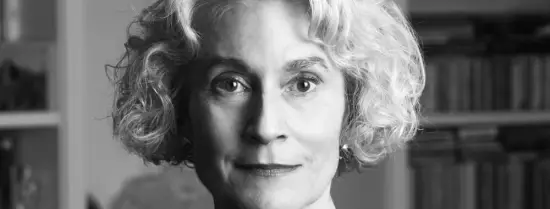Inleiding
analyze & differentiate between various interpretations of nature and culture in the disciplines of Philosophy, critically evaluate the presumptions at…
Belangrijkste Feiten & Cijfers
- Type
- Cursus
- Startdatum
- Nog niet bekend
- Tijdsduur
- 5 weken
- Voertaal
- Engels
- Instructievorm
- Online
Startdatums
Start in week of 3 January 2022
The concept of freedom lies not only at the heart of philosophical (historical) discourse of the last centuries, but is most prominent in political debates, especially in times of crises. In public debates, the meaning of freedom is thereby often reduced to the notion of individual self-interest and taken as a self-evident right. But what are the conditions of these freedom, and does freedom really apply to everyone in the same manner? Is there a tension of my freedom and those of others? How does the concept of freedom relate to individual rights and autonomy on the one side, and to responsibility, duties, and solidarity on the other?
This course seeks to highlight and elaborate how women philosophers - of different philosophical schools of thought as well as periods of time – define and discuss freedom. We want to highlight contributions from Women philosophers, not primarily because they have been sorely overlooked throughout the history of philosophy due to marginalization, but because they promise novel and alternative perspectives on a topic highly dominated by the perspectives of men.
This course, therefore acknowledges that women’s specific gendered situation affects their relation to and even their attitude towards philosophical issues. This is for example made apparent by the fact that women were not always and everywhere given the same rights and freedom as men.
Overview: We start the course with the fight for the vindication of women’s rights with Mary Wollstonecraft and Olympe de Gouge, and ask how this relies on the argument and concept of a universal freedom (week 1); we go on with Hannah Arendt to identify freedom as a key ingredient for a theory of action, where freedom is not merely the ability to choose from a set of options, but rather the capacity to start something new, and do the unexpected (week 2); we then critically discuss with Simone de Beauvoir a mere individualistic account of freedom. As an alternative, we look at Beauvoir’s relational account of freedom, in which freedom and vulnerability are reconciled, and my freedom and those of others happen to be necessarily intertwined (week 3); we end the course with thinking of freedom beyond the human with Val Plumwood, by understanding ourselves as part of an environment shared by all species (week 4).
Prior knowledge
You need to have obtained a minimum of 90 EC in Bachelor 1 and 2 to register.
Language
English
Period
Bachelor 3, block 2B; 3 January until 4 February 2022
Course guide & literature
Please consult the course guide for the timetable and literature. Registration possible from November 2021 onwards.
Do you have questions about this course? Contact the coordinator Eleni Koulouki

- E-mailadres
- koulouki@erasmusacademie.nl
- Telefoonnummer
- 010-4082555
- Adres
- Burgemeester Oudlaan 50
3062 PA
Rotterdam
Feiten & Cijfers
- Tarief
The fee per course €285,- incl. exam and resit. The yearly administration fee is €40.
- BTW
- Niet van toepassing
- Startdatum
- Nog niet bekend
- Tijdsduur
- 5 weken
- Aangeboden door
- Erasmus School of Philosophy
- Discipline
- Wijsbegeerte
- Type
- Cursus
- Voertaal
- Engels
- Instructievorm
- Online
- Bekostiging
private
